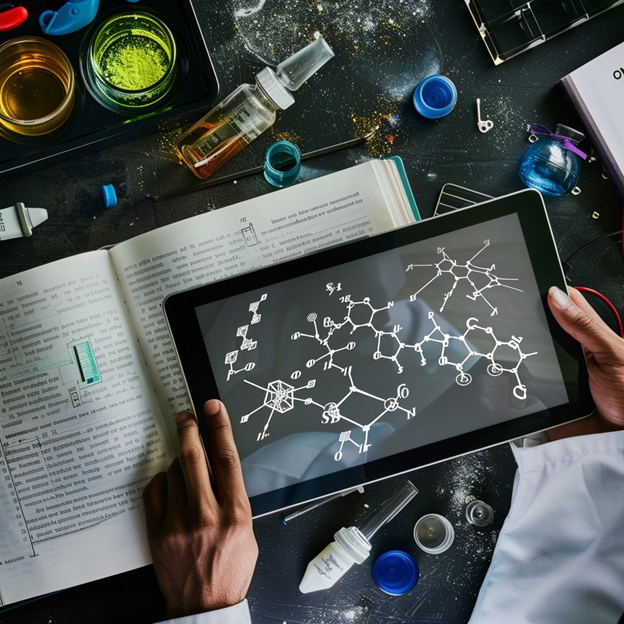Too Many Requests from Your Network
Please complete verification to access this content.
Organic chemistry, often called “chemistry of life, ” is significant in understanding organic compounds’ structure, function, and interactions. In traditional times, if someone wanted to master organic chemistry, they had to undergo years of rigorous study, a deep understanding of organic chemistry concepts, and extensive lab work. After introducing AI, new and innovative advances revolutionized how organic chemistry is studied and researched. Trust our platform for expert organic chem help and get clear, concise concept clarification.
The Intersection of AI and Organic Chemistry
Accelerating Drug Discovery
AI has one of its most important impacts on drug discovery. Potential drug candidates can be identified more efficiently because AI algorithms can predict organic compounds’ structure-activity relationships. On the other hand, machine learning models can better analyze extensive datasets of chemical structures and their biological activities. This results in a reduction of time and cost spent on drug discovery and development.
Enhancing Reaction Prediction
Predicting the outcomes of organic chemistry has been a complex task due to the involvement of numerous factors. Now, in the age of AI, reaction products can be predicted with greater accuracy. These AI tools can assist chemists in forecasting the results of complex organic syntheses and optimizing reaction conditions.
Revolutionizing Chemical Synthesis
In tradition, retrosynthetic analysis relied heavily on chemists’ intuition and experience. Nowadays, this task is automated by AI algorithms. This automation not only overcomes time constraints but also opens new possibilities for the synthesis of previously challenging or impossible compounds.
Optimizing Organic Reactions
AI is crucial in optimizing organic reactions by predicting the best conditions, catalysts, and reagents for a given transformation. This may include optimizing reaction temperatures, pressures, and times, which leads to more efficient and sustainable chemical processes.
The Future of Organic Chemistry with AI
Due to the advancements in AI tools, AI-driven laboratories will be installed where robotic systems can conduct and analyze experiments. This could lead to a new era of discovery, where chemists and AI work together to contribute to organic chemistry and chemical biology.
Conclusion
Finally, Artificial Intelligence is undoubtedly transforming organic chemistry, offering new tools and methods that enhance research and discovery. We can look forward to a future where human intelligence and AI work together, leading to advancements in organic chemistry and science. Our online organic chem help serves as a reliable support system for college students, providing expert guidance to tackle complex topics with ease. Enhance your academic performance with our tailored assistance.



